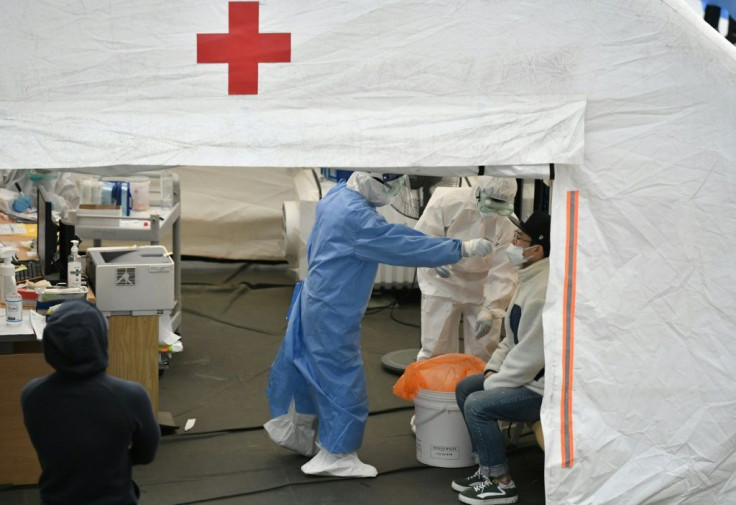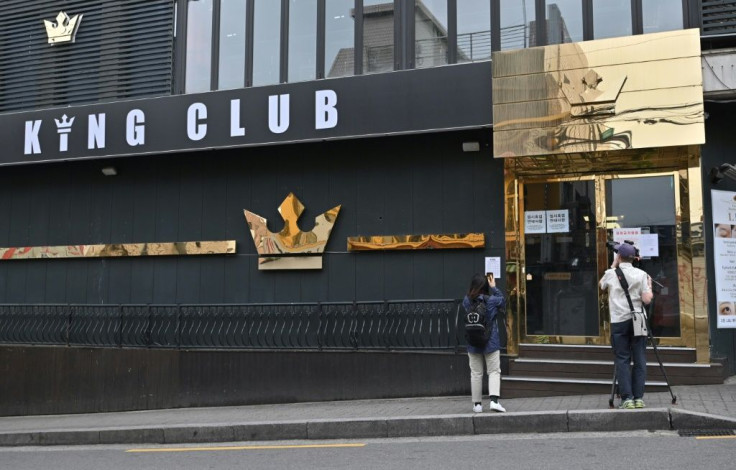S. Korea Deploys Mobile Data, Police To Tackle Nightlife Cluster
South Korean authorities said Tuesday they were using mobile phone data to trace Seoul nightclub visitors as they try to tackle a coronavirus cluster, promising anonymity to those being tested due to the stigma surrounding homosexuality.
The country has been held up as a global model in how to curb the virus, but a spike of new cases, driven by the cluster in venues in Seoul's Itaewon district -- including several gay clubs -- forced authorities to delay this week's planned re-opening of schools.
Many nightclub customers are believed to be reluctant to come forward because of the stigma surrounding homosexuality in the socially conservative country.
Seoul, as well as its neighbouring Gyeonggi province and the nearby city of Incheon, and the southern city of Daegu, have ordered the closure of all clubs and bars.
South Korea's handling of the initial coronavirus outbreak was widely praised, and how it deals with this latest spike will be closely watched as parts of Europe begin a cautious re-opening, where health experts are warning that moving too quickly will result in a surge in infection numbers.

Officials in the east Asian nation of 52 million announced 27 new cases Tuesday, taking its total to 10,936, after recording only single-digit increases for eight of the preceding 13 days -- many of them overseas arrivals.
As of noon Tuesday, 102 cases had been linked to the Itaewon cluster, the Korea Centers for Disease Control and Prevention said, up 16 in 24 hours, and the vast majority were men in their 20s and 30s.
The city government of Seoul secured a list of 10,905 people who visited the district through data provided by mobile operators and has sent text messages asking them to get tested, said Seoul Mayor Park Won-soon.

The Korea Disaster Management Headquarters said nearly 2,000 people believed to have visited the clubs are currently unreachable, and thousands of police will be deployed to track them down.
"The National Police Agency has established an operation system with 8,559 officers... to track down who cannot be identified through credit card information or data provided by mobile operators," said Yoon Tae-ho, the director of KDMH.
More than 7,000 people who have visited the area over the past two weeks have been tested, said Mayor Park -- who on Monday announced a 2 million won ($1,630) fine for those who avoid testing.
Test rates doubled after the city said it will ensure people's privacy by introducing anonymous testing, he added, but authorities still need more visitors to come forward.
People in face masks lined up for tests at a health centre in Itaewon Tuesday, keeping at least one metre (three feet) apart.
"A large number of confirmed cases were discovered in the Itaewon district, and since I live in the area I came to get tested just in case," Jeon Seung-ho, a 25-year-old musician, told AFP.
"I believe that the government should have encouraged the clubs to close down in the first place," he added.
Former K-pop star Park Gyuri admitted visiting one of the Itaewon clubs in early May and apologised for not following social distancing rules.
She tested negative but remains in self-isolation, her agency said in a statement.
Homosexuality is not illegal in South Korea, but rights groups say intolerance remains rampant.
KCDC vice director Kwon Joon-wook said "prejudice and discrimination" only impede prevention activities, urging the public not to blame virus patients.
© Copyright AFP 2024. All rights reserved.



















